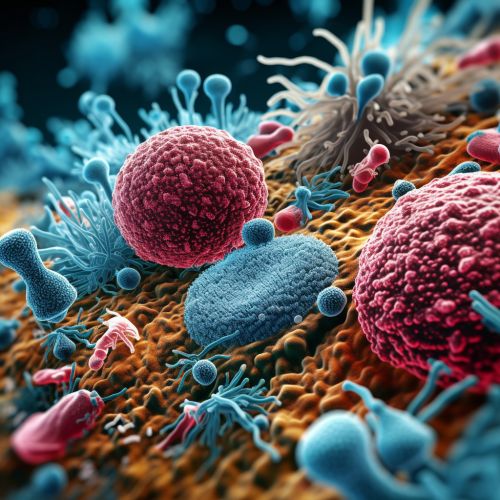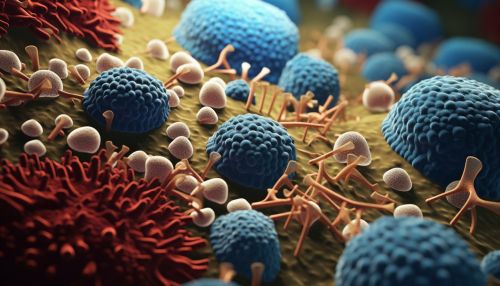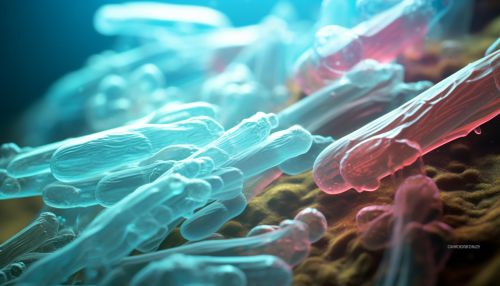Diseases Related to Fecal Matter
Introduction
Diseases related to fecal matter, also known as fecal-oral diseases, are illnesses that are primarily transmitted through the ingestion of feces contaminated food or water. These diseases are a significant health concern globally, particularly in regions with poor sanitation and hygiene practices. The pathogens involved in these diseases include bacteria, viruses, and parasites, which can cause a wide range of symptoms and health complications, from mild gastrointestinal discomfort to severe and life-threatening conditions.


Bacterial Diseases
Bacterial diseases transmitted through fecal matter are caused by the ingestion of bacteria present in contaminated food, water, or surfaces. These bacteria can multiply in the human gut, causing various symptoms and complications.
E. coli Infections
E. coli is a type of bacteria that lives in the intestines of humans and animals. Most strains of E. coli are harmless, but some can cause serious illness. The most common disease-causing strain is E. coli O157:H7, which produces a toxin that can cause severe diarrhea, abdominal cramps, and in severe cases, a type of kidney failure called hemolytic uremic syndrome.


Salmonella Infections
Salmonella is another bacterium that can cause illness through fecal contamination. Salmonella infections, or salmonellosis, typically cause diarrhea, fever, and abdominal cramps. In severe cases, the infection can spread from the intestines to the bloodstream and other parts of the body, leading to serious complications.
Cholera
Cholera is an acute diarrheal illness caused by the bacterium Vibrio cholerae. The disease can cause severe dehydration and death if untreated. Cholera is typically spread through contaminated water and is a major health concern in areas with poor sanitation and water treatment.
Viral Diseases
Viral diseases related to fecal matter are caused by viruses that are shed in the feces of infected individuals and can survive outside the body for a period of time. These viruses can be ingested through contaminated food or water, or through direct contact with an infected individual.
Hepatitis A
Hepatitis A is a liver disease caused by the Hepatitis A virus. The virus is primarily spread when a person ingests food or water contaminated with the feces of an infected person. Symptoms of Hepatitis A include fatigue, nausea, abdominal pain, loss of appetite, and jaundice.


Norovirus
Norovirus is a highly contagious virus that causes gastroenteritis, an inflammation of the stomach and intestines. Norovirus is the leading cause of foodborne illness outbreaks worldwide. It is spread through contaminated food or water, direct contact with an infected person, or touching contaminated surfaces.
Polio
Poliomyelitis, commonly known as polio, is a highly infectious disease caused by the poliovirus. The virus is spread primarily through the fecal-oral route, although it can also be transmitted through contaminated food or water. Polio can cause paralysis and can be fatal.
Parasitic Diseases
Parasitic diseases related to fecal matter are caused by parasites that are transmitted through the ingestion of their eggs or cysts present in contaminated food, water, or soil.
Giardiasis
Giardiasis is a diarrheal disease caused by the microscopic parasite Giardia. The parasite is found in soil, food, and water that has been contaminated with feces from infected humans or animals.
Cryptosporidiosis
Cryptosporidiosis is a diarrheal disease caused by the microscopic parasite Cryptosporidium. The parasite can survive outside the body for long periods and is resistant to many common disinfectants, making it a challenging pathogen to control.
Amoebiasis
Amoebiasis, or amoebic dysentery, is an infection caused by the parasite Entamoeba histolytica. The parasite can cause severe dysentery, including bloody diarrhea, and can also infect other organs, such as the liver.
Prevention and Control
Preventing and controlling diseases related to fecal matter primarily involves improving sanitation and hygiene practices. This includes ensuring access to clean water, promoting handwashing, improving food safety, and providing adequate sanitation facilities. Vaccination is also an important control measure for some diseases, such as Hepatitis A and polio.


